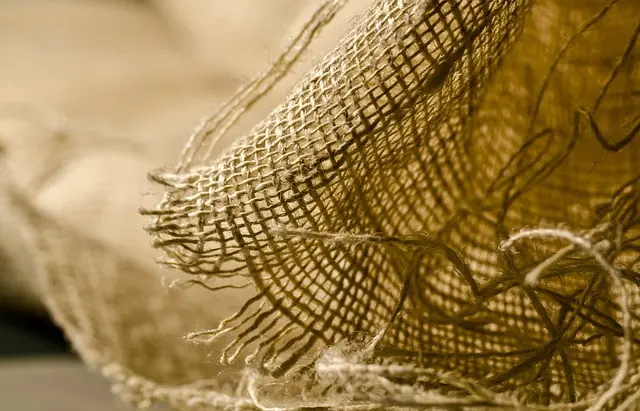Muscle soreness can range from mild to severe and often occurs after physical activity or injury, particularly in cases of delayed-onset muscle soreness (DOMS). This condition is linked to microscopic tears in the muscle fibers. Kratom, a plant from Asia with alkaloids like mitragynine and 7-hydroxymitragynine, has been explored for its potential pain-relieving properties, interacting with opioid receptors. As of now, kratom's legal status in Louisiana is nuanced, with the substance being legally accessible under current state regulations as of 2023. However, this could change, so it's crucial for individuals to stay updated on Louisiana's evolving laws regarding kratom and consult healthcare professionals about its use. The legality of kratom in Louisiana is subject to both state and federal laws, with recent legislative discussions highlighting the need for careful consideration of its safety and efficacy. Prospective users should verify the current legal status of kratom in their jurisdiction within Louisiana before using it as a natural remedy for muscle soreness, considering the potential side effects and interactions with other medications. Safety, informed decision-making, and professional guidance are essential when exploring kratom as an option for pain management.
Muscle soreness can be a debilitating companion for many, whether from intense physical activity or other causes. Seeking effective relief, individuals often explore natural remedies, leading to the emergence of kratom as a potential solution. Known for its diverse alkaloids, kratom has garnered attention for its purported analgesic properties. However, before delving into how kratom allegedly eases muscle soreness, it’s crucial to understand its legal standing, particularly in Louisiana. The article will clarify the status of kratom within this region, addressing the question “Is kratom legal in Louisiana?” followed by an exploration of effective relief strategies that incorporate kratom.
- Understanding Muscle Soreness and the Role of Kratom: An Overview
- Exploring the Legal Status of Kratom in Louisiana: Is Kratom Legal?
- Effective Relief Strategies: How Kratom Allegedly Eases Muscle Soreness
Understanding Muscle Soreness and the Role of Kratom: An Overview

Muscle soreness, a common affliction experienced by individuals engaged in physical activity or those recovering from injury, can range from mild discomfort to severe pain. This condition, often referred to as delayed-onset muscle soreness (DOMS), is typically a result of microscopic tears within the muscle fibers due to unaccustomed exercise or overexertion. Understanding the mechanisms behind muscle soreness is crucial for effective management and relief.
Kratom, a plant from Southeast Asia with leaves containing compounds known as alkaloids, has garnered attention for its potential analgesic properties. Mitragynine and 7-hydroxymitragynine are two significant alkaloids found in kratom that have been associated with pain relief. These substances interact with the body’s opioid receptors, which may help in managing muscle soreness. The legal status of kratom varies across different regions; for instance, is kratom legal in Louisiana? As of my knowledge cutoff in 2023, kratom is legal in Louisiana but subject to certain regulations and restrictions, similar to other states in the U.S. It’s important for individuals considering kratom as a remedy for muscle soreness to be aware of their jurisdiction’s laws regarding its use. Users should exercise caution and consult with healthcare professionals before integrating kratom into their wellness routine, particularly given the nuanced legal landscape surrounding its availability and the potential for interaction with other medications.
Exploring the Legal Status of Kratom in Louisiana: Is Kratom Legal?

When investigating the efficacy of kratom for muscle soreness relief, it’s imperative to first understand its legal status in the state where one resides. In Louisiana, the legal status of kratom has been a subject of debate and legislative action. As of recent updates, kratom is not explicitly scheduled as a controlled substance under Louisiana state law. This means that, within the jurisdiction of this state, kratom is legally available to consumers. However, it’s essential to stay informed, as legal classifications can change. The legislature has considered various bills aimed at regulating or restricting kratom access and use, reflecting the broader national conversation on its safety and efficacy. Consumers interested in using kratom for muscle soreness should be aware of the evolving legal landscape surrounding this product. It’s advisable to refer to the latest statutes and guidelines provided by the Louisiana State Legislature or the Food and Drug Administration (FDA) to ensure compliance with current laws, as the legality of kratom can vary from state to state and is subject to federal regulations.
Effective Relief Strategies: How Kratom Allegedly Eases Muscle Soreness

Kratom, a tropical evergreen tree native to Southeast Asia, has garnered attention for its potential role in muscle soreness relief. The active compounds found in kratom leaves, mitragynine and 7-hydroxymitragynine, are believed to interact with the body’s opioid receptors, which may help in alleviating pain associated with muscle soreness. Users often report that kratom aids in managing discomfort resulting from intense physical activities or exercise. While exploring effective relief strategies, it’s important to consider the various strains of kratom and their unique effects; for instance, certain strains like Maeng Da are popular for their potent analgesic properties.
The legality of kratom varies across different regions in the United States, with some states, including Louisiana, having specific regulations. As of the knowledge cutoff date, kratom is legal in Louisiana, but its status can be subject to change based on federal and state legislation. Users interested in incorporating kratom into their pain management routine should first verify its current legal status in their jurisdiction. Additionally, it’s crucial to approach the use of kratom with caution, as it may have side effects and can interact with other medications. Always consult with a healthcare professional before relying on kratom for muscle soreness relief to ensure safe and responsible usage.
In conclusion, muscle soreness can be a significant discomfort for individuals engaging in physical activities. The article has explored the science behind muscle soreness and how kratom, traditionally used in certain cultures, may offer relief. While examining the legal status of kratom, particularly in Louisiana, it’s clear that its regulatory standing varies, with important caveats to consider for users. It is imperative for anyone interested in using kratom as a natural remedy to first verify its legality within their jurisdiction, given the evolving legal landscape surrounding this substance. The potential of kratom to alleviate muscle soreness has been a focal point of discussion, though it’s crucial to approach its use with caution and informed decision-making. Users are encouraged to consult healthcare professionals before integrating kratom into their wellness routine to ensure safe and effective usage.






